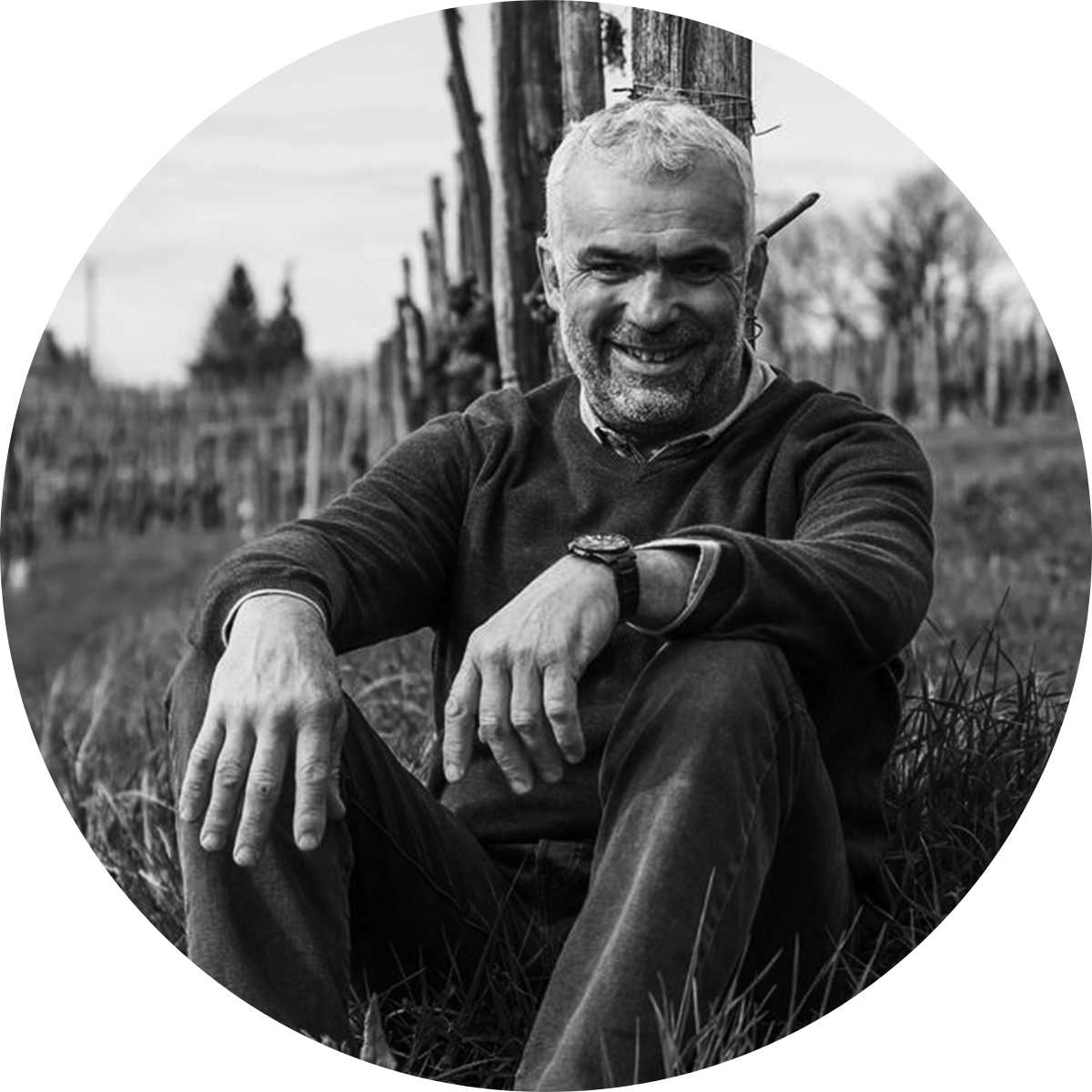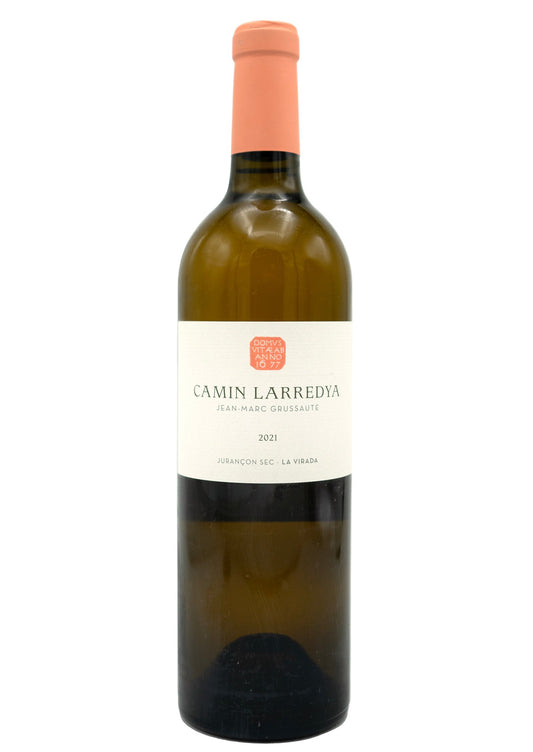DOMAINE CAMIN LARREDYA
JEAN-MARC GRUSSAUTE
Jurançon, Midi-Pyrénées, France
A native son of the Bearn region, in the Southwest of France, Jean-Marc is very fond of his own region. At the age of 20, he took over the family estate and applied conventional and high-interventionist methods by the book, from what he learnt in school. But, only after meeting his wife and exchanging with other winemakers, he questioned those methods and finally started organic and biodynamic farming in the early 2000s. He also started using indigenous yeasts while adding sulphur when necessary. The 9,5 hectares planted by Jean-Marc’s father in the 1970’s, are terraced and lie on steep and curved slopes that form an amphitheatre. At Domaine Camin Larredya, dry Jurançon represents 80% of the total production. The wines are named after the parcels from which they come from.
One of our favourite dry wines, La Virada, is a special plot planted on the “turning” (virada) slope in front of the family house. Blending perfectly Gros Manseng, Petit Manseng, Petit Courbu and Camaralet grape varieties, this limited wine (3000 bottles per year) offers great depth of exotic fruits and a rich mouth with saline notes.
MORE OF DOMAINE CAMIN LARREDYA
-
Camin Larredya Jurançon Sec La Virada 2023
Regular price HK$370.00Regular priceUnit price / per -
Camin Larredya Jurançon Au Capceu 2022
Regular price HK$490.00Regular priceUnit price / per
BACKGROUND OF NATURAL WINE IN SOUTH WEST
The South West of France stretches along the Atlantic coast and it’s bordered by the Pyrenees mountains. Popular grape varieties cultivated here include Malbec, Tannat, Merlot, Sauvignon Blanc, and Gros Manseng, among others. With its dynamic terroir, unique microclimates, and commitment to sustainable viticulture, the South West of France continues to captivate wine enthusiasts with its distinct flavours and exceptional quality.
Organic, Biodynamic and Natural wine. What’s the difference?
To understand this concept and its various ramifications, it is necessary to keep something clear in mind: before the 20th century and the spreading of affordable synthetic fertilisers, all farming was organic. When the shift to the use of synthetics and pesticides happened, it became necessary to diversify traditional organic farming from the new modern farming.
ORGANIC WINE
Simply put, organic farming forbids the use of synthetic fertilisers, synthetic pesticides, herbicides, or genetically modified organisms. The basic requirements are generally specific and engage the farmers not to use any chemical fertilisers and other synthetic products in the vineyard. It does not prevent the vintner from using the conventional winemaking process after harvesting.
BIODYNAMIC WINE
Let’s take organic farming one step further: Biodynamic. The creator of this agricultural system is the Austrian philosopher Rudolf Steiner, who developed the principles of biodynamics in a series of lectures given in 1924 in Germany. Here lies the foundation of true organic wines, with a strict limit in the use of additives, stringent requirements and at the end obtaining a biodynamic certification.
NATURAL WINE
The previous definitions are usually, and rightfully, associated with it, because most natural wine is also organic and/or biodynamic. But not vice versa!
Natural wine is wine in its purest form, simply described as nothing added, nothing taken away, just grapes fermented. No manipulation whatsoever, minimal intervention both in the vineyards and in the winery. Healthy grapes, natural yeast and natural fermentation, with no filtration nor fining. Sounds easy, right? However, making natural wine is unforgiving and it requires a bigger amount of work than conventional wine. To this day, natural wine has no certification yet.







